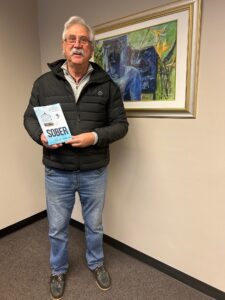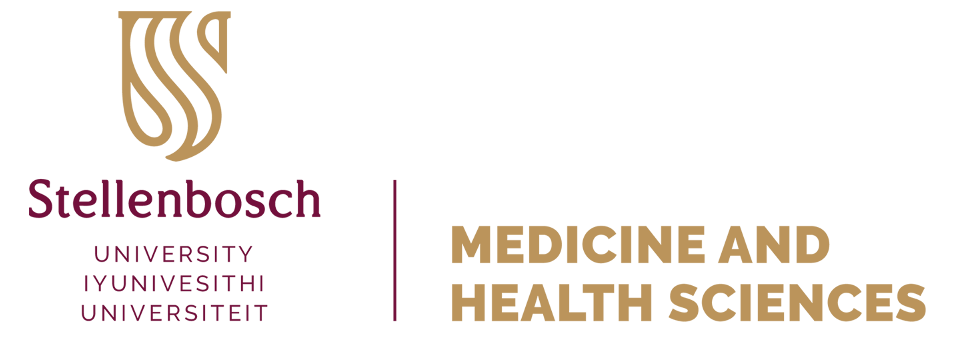[:en] Prof Willie Pienaar, an Emeritus Professor in the Department of Psychiatry with more than 40 years of experience in healthcare (clinical and academic) published a book in Afrikaans titled ‘Sober – n’ Pratiese gid na vryheid van verslawing’.
Prof Willie Pienaar, an Emeritus Professor in the Department of Psychiatry with more than 40 years of experience in healthcare (clinical and academic) published a book in Afrikaans titled ‘Sober – n’ Pratiese gid na vryheid van verslawing’.
What inspired Prof Piennar to write this book?
As clinicians, educationists, and researchers in the field of health care, we grow steadily in knowledge, skills, and experience over many years. At the twilight of our professional career, we often have to leave the stage when our career is at its peak. This sudden ending of a career may leave one with a void in future purpose or an uncomfortable dead end. The essence of today is tomorrow and the days thereafter. Utopia does not come with retirement, believe me! I missed my patients, my students, and my colleagues. After my ‘early’ retirement, I had to put to use my accumulated knowledge, skills, and maybe a touch of wisdom. I had to put pen to paper. This inspirational energy has given me a new sense of purpose and I pray that the book titled ‘Sober’ might lead to the sobriety of the many people struggling with dependency. I also hope that the book may help and empower isolated families with dependency-suffering loved ones and health workers with patients suffering from addiction.
Retirement may inspire. Retirement does not have to be the end of one’s professional life but can be an opportunity to make a slight adjustment in one’s future direction, to be creative, and to identify new goals. In philosophy, it is well understood that the ‘good life’ is not reserved for retirement. The ‘good life’ should be experienced throughout one’s years by living a purposeful life, even if complex and at times painful. Purpose may be understood as giving meaning to life. It is also true that one’s life, a life, can only be truly fulfilled by others. To be able to experience a ‘good life’ has something to do with the ability to feel good in one’s own skin and live in harmony with others, no matter what diversities exist. It is the essence of “I am ok, you are ok!” This book, if put into action, may be purpose-giving for those suffering dependencies.
More importantly, I was inspired to perhaps again be able to reach those in need who have a possible dependency or a debilitating dependency, to help them to take ownership of their future and to taste again the benefits of a sober lifestyle. If one addict or one family or one battered child can be helped by a sober lifestyle as a result, then my book and effort will be worthwhile.
What is the book about?
The book is written for people who are developing a dependency, dependent individuals, addicts and their loved ones, families, medical doctors, therapists, clergymen, young, old, and the rest. The book is written in a conversational style, simple, clear, and informative, to counteract fallacies, prevent individual and family isolation, motivate action towards sobriety, hope and belief, describe treatment possibilities, and provide a roadmap towards sobriety and a new lifestyle with total future responsibility. Dependency can be broken despite previous failures and multiple relapses and the addict can adopt sobriety as his or her own. They can become winners. They can accept this illness as their own and in the palm of their own hands. Even if all else has failed, ongoing sobriety remains a real possibility.
The following definitions or facts are explained; intoxication, tolerance, withdrawal, abuse, psychological dependence, physical dependence, co-dependency, and addiction. It is so important to be able to talk the same language, otherwise, it becomes impossible to communicate with meaning and results. It is necessary to understand the intellectualization, minimization, projection, rationalization, and denial of the person who is trying to keep a dependency going. Without understanding this illness, therapeutic interaction would be impossible. The lifestyles of dependent individuals have many, many faces. One needs to fully understand this illness before one can intervene. The concept of dependency as an illness like any other illness is explained. Why do people become dependent? Why are dependent individuals so resistant to treatment? Why are they so poorly motivated? Why can they not just stop? Why all the relapses? Why are they trapped in this illness? What is a drug and why are they so readily available? All these questions are carefully discussed to give us the why and the how of practical therapeutic interventions.
Special topics like humanity’s search for meaning, management of the unique complexities of the adolescent years, the dangers of young adult life, the concept of humans as bio-psycho-social-spiritual beings, our uniqueness as individuals, and what internally and subconsciously motivates our daily actions. We are vulnerable, yet at times we operate as if we are indestructible. A very important question for individuals is, “What do you want to be?” We have three energies; our genetic predisposition, our life’s experience and learned behaviour, and last, that which we want to be, our intentional choices concerning how people are going to remember us.
Only now, with this understanding of the illness of dependency, one can plan patient motivation and therapy toward sobriety. Dependency is an illness in the palm of an individual’s hands. Only that person can face this challenge. She or he can become a winner and become ‘whole’ again. They can stay sober one day at a time. The potholes in the road to sobriety and the many diversions are discussed. The stages of motivation and the drive towards ongoing motivation are explained. The roadmap to sobriety is developed and described. The family is educated in co-dependency and a roadmap is provided to help in the healing process and relationships.
The content of the book will help all therapists to extend, renew, confirm, and enhance sound therapeutic principles in their management of dependent patients.
What did you learn through writing this book?
Being a therapist for patients who are trying to keep their dependency going is not easy. Of course, they are suffering, and of course, they want to stop, but the immense impact of dependency (which can be very difficult to understand) ‘forces’ or dissuades the addict from doing so! The motivational process can at times be long and very difficult. Perseverance, compassion, and discernment are virtues hard-earned, yet essential to a treatment plan. I have also learned that a lot of ignorance, fallacies, and misconception concerning the causes and treatment of dependency exist, even today. I have also come to realize that health carers in the field of substance dependency are not always adequately trained and equipped with the management skills for these ‘difficult’ dependent patients.
I had the wonderful privilege of truly learning from my patients for more than thirty years as an addictionist. I am grateful to them.
What is the significance of the book’s title?
During the few months that I wrote the book I discovered that no matter how hard, how frustrating, and at times, how draining the field of addiction therapy may be, patients experiencing ongoing sobriety were a reality and the therapeutic interventions meaningful. I must extend a huge thank you to those many, many patients who now enjoy sobriety, who became winners, and who taught me never to give up on an individual who is suffering from dependency. It is an achievable goal. The community at large must know that becoming sober is a process over time, but with the appropriate help, sobriety is always possible.
‘Sober’ is written as a practical guide towards a sober lifestyle for those who struggle with a dependency of some kind. The book focuses mainly on alcohol dependency as an example of addiction. In the literature, newspapers, magazines, and online, the social dilemmas caused by addiction are belaboured to exhaustion. Endless detail on the problems and few practical solutions are offered for solving this serious dilemma. With this title, I wanted to give a simple, yet practical and doable, therapeutic roadmap to sobriety for the patient, their family, and their therapists. A sober lifestyle is possible and rewarding. Treating addiction successfully will make this world a much better place, not perfect but closer to harmony in the world. I am not going to reiterate the loss of life, damaged children, violence, ruined relationships, destruction of potential success and happiness, enough is enough.
What do you hope readers will take away after reading your book?
‘Sober’ the book may become your doable practical guide towards sobriety and a life free from addiction. If one ‘wills’ the power to follow the roadmap to sobriety and chooses a better future, one can achieve sobriety in any stage of one’s dependency. ‘Sober’ is educational, informative, strongly motivational, and therapeutic. ‘Sober’ may be read by not only those suffering a dependency and co-dependency of a kind but also those who suffer because of dependent loved ones. Adolescents and young adults may also benefit from this motivational and informative work. Family doctors, all health specialists, and therapeutic teams in the field of addiction may find this work educational. The book may be prescribed for patients as it is written for patients suffering from addiction.
Publisher: LAPA (https://lapa.co.za/sober-praktiese-gids-na-vryheid-van-verslawing-willie-pienaar) .[:]
